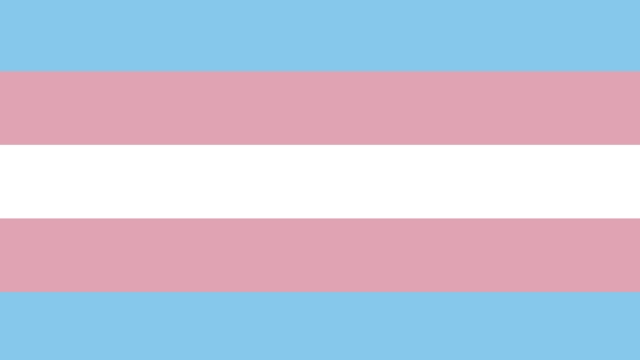HRC Files Amicus Brief with Major Companies Supporting Transgender Students in Critical Case

HRC filed a “friend of the court” brief in the U.S. Court of Appeals for the Eleventh Circuit on behalf of 32 major U.S. companies supporting the rights of transgender students in Adams v. School Board of St. John’s County Florida. Drew Adams, a transgender boy, filed suit against his local school district challenging their discriminatory policy forbidding transgender students from accessing facilities consistent with their gender identities.
The lawsuit, filed on behalf of Adams by Lambda Legal, argues that the district’s practices violate Title IX of the Education Amendments Act of 1972 and the U.S. Constitution. In July 2018, Adams prevailed in federal court, which held that the school board’s bathroom policy was not substantially related to its purported interests in student privacy or safety. Moreover, the district court held that federal sex protections encompass gender identity and issued injunctive relief prohibiting the school board from enforcing its discriminatory bathroom policy.
The Eleventh Circuit is expected to hear the school district’s appeal of the lower court’s decision sometime later this year.
“At this critical moment in the fight for transgender equality, these leading businesses are standing up for the rights and dignity of transgender students,” said HRC President Chad Griffin. “Policies that target transgender students for discrimination are dangerous and pose a serious risk to these businesses’ employees, their families and their customers. No student should wake in the morning fearful of bullying or discrimination during the school day ahead — and we thank these companies for their support of transgender young people like Drew Adams.”
Leading American businesses have long expressed a commitment to LGBTQ diversity and inclusion in their workforces as evidenced by inclusive policies, practices and benefits. Businesses realize being inclusive is not only the right thing to do — it just makes good business sense as well. Companies that are inclusive of LGBTQ people and employees with LGBTQ family members are able to attract and retain the best and brightest across a wide spectrum of diversity, reap the benefits from increased engagement and productivity, and actively participate in the vibrant LGBTQ consumer marketplace.
Having built inclusive workplaces for their transgender employees and transgender dependents of employees, companies have a vested interest in the legal landscape in which those employees and their dependents live, work or go to school.
The 32 companies, represent roughly 1.36 million employees, a wide variety of industries, and $778 billion in revenue, signing the brief are:
Airbnb, Inc., Apple, Asana, Inc., CREDO Mobile, Inc., Deutsche Bank, eBay Inc., General Assembly Space, Inc., GitHub, Inc., Glassdoor. Inc., GlaxoSmithKline LLC, Google LLC, IBM, Indiegogo, Inc., Kaiser Permanente, Knotel, Levi Strauss & Co., Linden Research, Inc. (d/b/a Linden Lab), Lyft, Mapbox, Marin Software Incorporated, MassMutual Life Insurance Company, Microsoft Corporation, Mitchell Gold + Bob Williams, NIO USA, Inc., Patreon, Postmates Inc., Replacements, Ltd., Shutterstock, Inc., Spotify, Tumblr, Inc., Xerox Corporation and Yelp Inc.
The brief was authored by BakerHostetler, one of the nation’s prominent law firms.
“BakerHostetler is proud to represent our clients, including these 32 leading companies, in pursuing their missions of diversity and inclusion,” said BakerHostetler Associate Joanna F. Wasick. “This brief underscores the ongoing commitment of major U.S. corporations and HRC to the fight for the full protection of the law for all individuals,” added BakerHostetler Partner Edward J. Jacobs.
The brief argues that the district’s policy, if it were upheld, would adversely affect the companies’ transgender employees and employees with transgender children, undermining their ability as employers to build and maintain the diverse and inclusive workplaces that are essential to the success of their companies.
According to HRC’s 2018 Gender Expansive Youth Survey, 51 percent of transgender and gender expansive youth never use restrooms at school that align with their gender identity. A recent study correlated the high suicide rates of transgender students with discriminatory bathroom restrictions, and, according to the Youth Suicide Prevention Program, more than 50 percent of transgender youth will have had at least one suicide attempt by their 20th birthday.
Allowing transgender people to access facilities consistent with their gender identity — something compelled for years by laws in 20 states as well as embraced by hundreds of cities and school districts around the country — has not resulted in problems. On the other hand, forcing transgender students to use sex-segregated facilities contrary to their identity can impose real harm on transgender students, further compounding the discrimination and marginalization they already face.
In May 2017, HRC filed an amicus brief signed by major companies in support of transgender student Gavin Grimm after the U.S. Supreme Court sent his case back to the Fourth Circuit Court of Appeals following the Trump Administration’s decision to rescind guidance that protected transgender children in schools.
To read the amicus brief in filed earlier today, click here.
You Might Like
